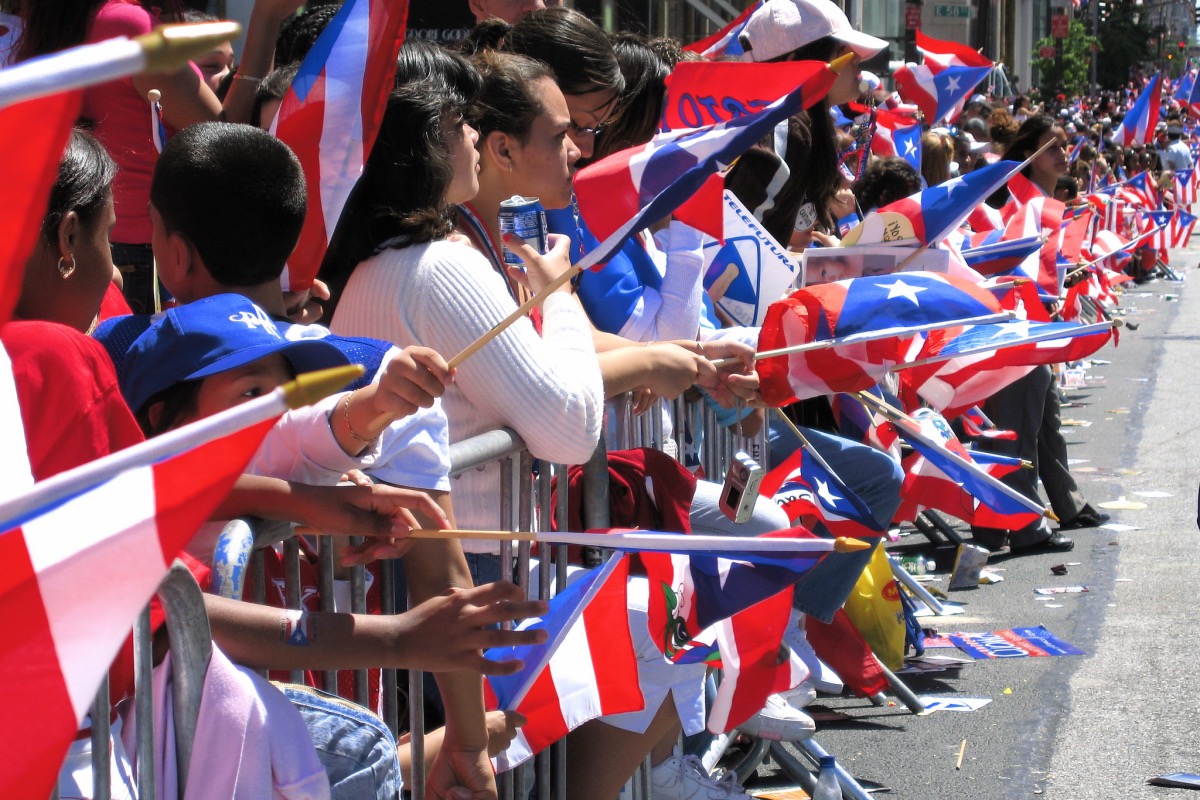SAN JUAN — In Puerto Rico, March 2 marks the anniversary of when, in 1917, the U.S. Congress granted U.S. citizenship to anyone born in the islands. But for some Puerto Ricans, American Citizenship Day is a grim reminder of the unequal citizenship rights that deny them access to federal disability benefits because they are residents of Puerto Rico.
Supplemental Security Income, or SSI, is a monthly payment system meant for low-income U.S. citizens or nationals who are disabled or above the age of 65. It is available to people living in the 50 states and Washington, D.C., but not to people living in U.S. territories like Puerto Rico and American Samoa.
“The program was created for the people, not the land they live on,” Abraham Rivera Berríos, the first person to sue the U.S. government from Puerto Rico for being denied access to SSI in 2019, told Latino Rebels.
Abraham, 72, filed the lawsuit on behalf of his son Emanuel Rivera Fuentes, 36, who has been confined to his bed for years due to cerebral palsy. Since then, Abraham been joined by other Puerto Rican plaintives seeking SSI benefits from the federal government.
Rivera Berríos’s family currently lives off of his and his wife Gladys’ social security benefits. Gladys, 67, suffers from kidney failure and has a tracheotomy which prevents her from working. He calls her “milagrito” —little miracle— because she has survived so long. His daughter, who also would have qualified for SSI, died two years ago.
“There’s barely any help for low-income families, we have to do everything ourselves,” explained Abraham, who functions as the family’s sole caretaker.
For him, SSI payments would mean relief from having to worry about whether he has to pay for housing, food, electricity, and water or his family’s medications and treatments, which add up to hundreds of dollars per month. It’s a choice many people in his position, some of them who accompany him in the lawsuit, have had to make.
His case is currently before the First Circuit Court of Appeals.
In April 2022, the U.S. Supreme Court ruled 8-1 to uphold federal law that denied SSI to residents of Puerto Rico. A lower appeals court had previously ruled that excluding SSI benefits to residents was unconstitutional, but the Biden Justice Department argued before the Supreme Court in 2021 that the appellate ruling should be reversed.
Justice Sonia Sotomayor, whose parents were born in Puerto Rico, was the lone dissenter.
“Just as not every federal tax extends to residents of Puerto Rico, so too not every federal benefits program extends to residents of Puerto Rico,” Justice Brett Kavanaugh wrote in the majority opinion.
While Puerto Ricans do not pay federal income taxes unless they work for the federal government, they do pay social security taxes, payroll taxes, and so on. Puerto Ricans also have the highest sales tax in the United States, which —along with a debt crisis and the rising cost of living— has put many families like Abraham’s in dire straits.
The case began in 2013, when New York resident José Luis Vaello-Madero, who was receiving SSI benefits after suffering a series of strokes, moved to Puerto Rico where he continued receiving SSI, totaling more than $28,000 over the course of several years. The payments eventually stopped when he notified the Social Security Administration, upon which they sued to recover the payments made while he lived in Puerto Rico.
Puerto Rico has been a U.S. territory since the Spanish-American War in 1898. The archipelago’s residents became U.S. citizens in 1917 when then-President Woodrow Wilson signed the Jones-Shafroth Act, which also created the Senate of Puerto Rico, established a bill of rights, and authorized the election a resident commissioner (who had been previously appointed by the president). However, Puerto Ricans do not vote for president, and the resident commissioner, technically a member of the U.S. House of Represenatives, cannot vote on the floor of that chamber.
While the Supreme Court ruled against Vaello-Madero, it is possible that Abraham’s case could see a different outcome as it utilizes different legal arguments that Justices Clarence Thomas and Neil Gorsuch signaled they were more amenable to, lawyer Isabel Abislaimán-Quílez, who represents the Puerto Rican residents suing for SSI, explained to Latino Rebels.
In his concurring opinion, Justice Thomas mentioned that “firmer ground for prohibiting the Federal Government from discriminating on the basis of race” with respect to civil rights could be found in the Fourteenth Amendment, hinging the lawsuit on Puerto Ricans’ American citizenship instead of Vaello-Madero’s Territory Clause argument.
“The Insular Cases have no foundation in the Constitution and rest instead on racial stereotypes. They deserve no place in our law,” wrote Justice Gorsuch in his concurring opinion in Vaello-Madero.
Legal experts and human rights groups agree that the Insular Cases, a series of Supreme Court rulings from the early 20th century that repeatedly describe Puerto Ricans “savages,” were based on racist doctrines and should be repealed. For more than 120 years, the Insular Cases have formed the basis for the federal government’s justification for discriminating against the residents of U.S. territories.
Abraham’s case looks to repeal the Insular Cases completely, which the Supreme Court refused to do so in the case of Fitisemanu v. United States in 2022.
The Biden administration has said it supports changing the law to extend SSI payments to Puerto Rico, even while giving the Department of Justice the green light to continue its appeal in 2021.
A separate program, the Aid to the Aged, Blind, and Disabled, provides payments to the residents of U.S. territories, though the payments are less than those of SSI and the program has more stringent eligibility requirements.
***
Carlos Edill Berríos Polanco is the Caribbean correspondent for Latino Rebels, based in San Juan, Puerto Rico. Twitter: @Vaquero2XL



